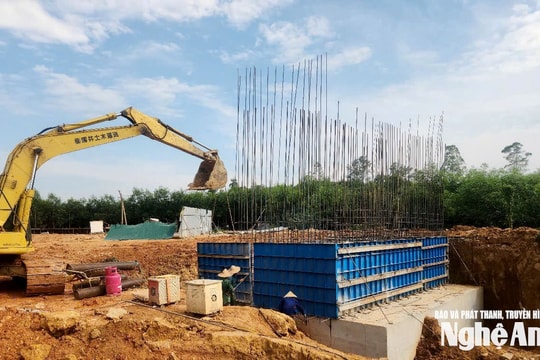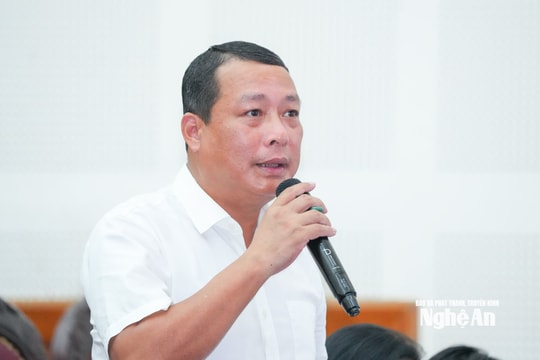Ensure adequate equipment for the Commune-level Public Administration Service Center in Nghe An to operate smoothly.
Responding to questions from the Provincial People's Council delegates, Director of the Department of Science and Technology of Nghe An, Nguyen Quy Linh, said that in the coming time, the Department will advise the Provincial People's Committee on solutions to ensure information technology infrastructure and equipment for the Commune-level Public Administration Service Center to operate smoothly.
On the afternoon of July 9, the 31st session of the 18th term People's Council of Nghe An province, term 2021 - 2026, held a discussion session in the hall.
Basically ensure the minimum number of devices
Discussing and answering questions from the Provincial People's Council delegates about difficulties in the operation of the commune-level government apparatus, Director of the Department of Science and Technology Nguyen Quy Linh said that the two-level government apparatus is operating in the spirit of "running while queuing" and localities have made efforts to ensure the system is smooth.
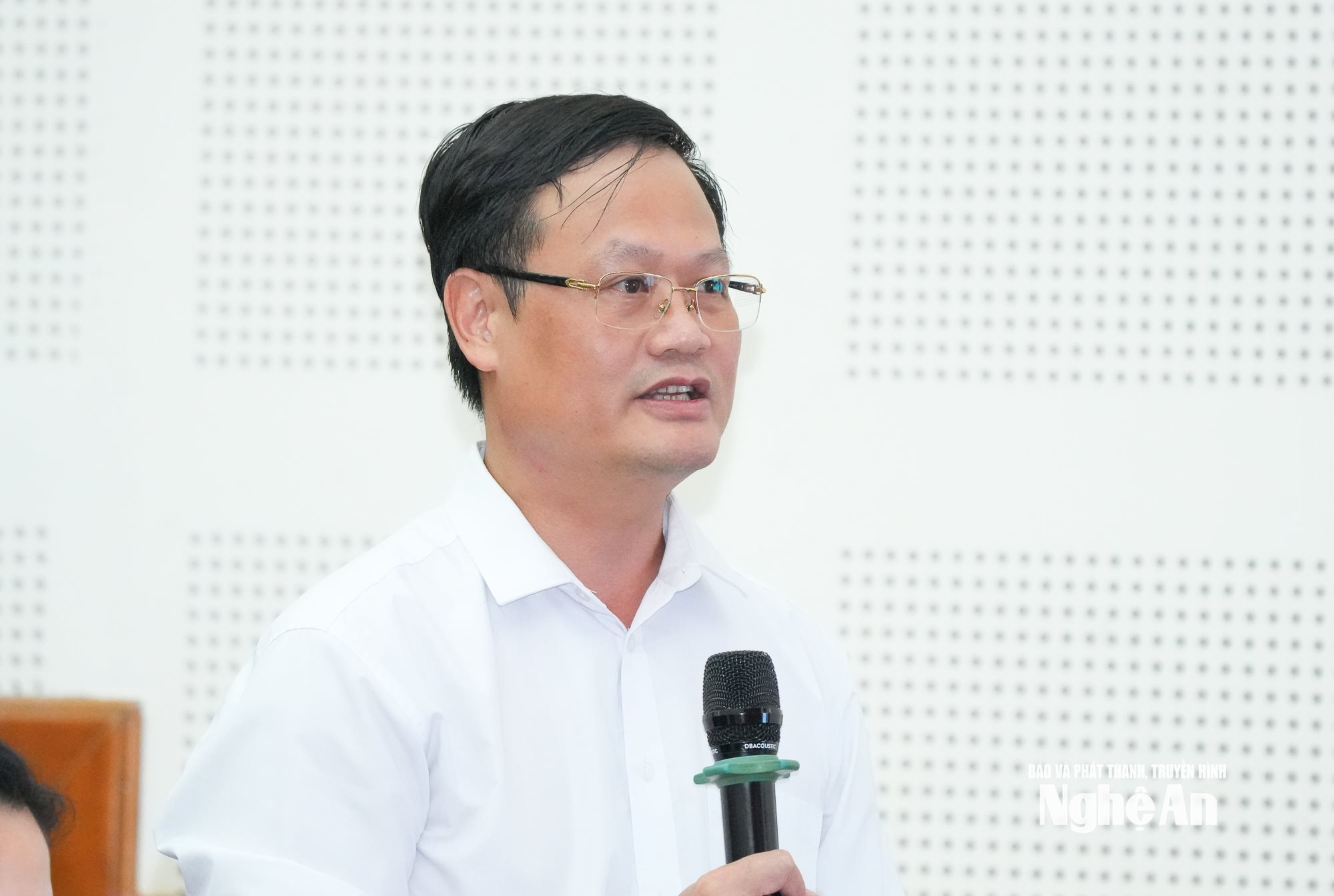
However, the Director of the Department of Science and Technology said that the lack of information technology infrastructure, especially the machinery system serving public administrative centers, is a real problem.
Through the review process, according to the report, up to now, the commune-level public administrative service centers have basically ensured the minimum number of equipment; 20/130 public administrative service centers have not yet generated administrative procedures. Currently, the Department is focusing on reporting to the Provincial People's Committee to report to the Ministry of Science and Technology to have a plan to ensure the provision of equipment for the Public Administrative Service Center to operate.
Regarding the lack of civil servants and staff in charge of the IT field, to ensure the operation of the two-level government, the Director of the Department of Science and Technology said that the Department has consulted the Provincial People's Committee and requested the telecommunications unit to send staff on duty 24/7 at the Public Administration Service Centers to meet the requirement of "hand-holding and guiding" the staff at the commune level.
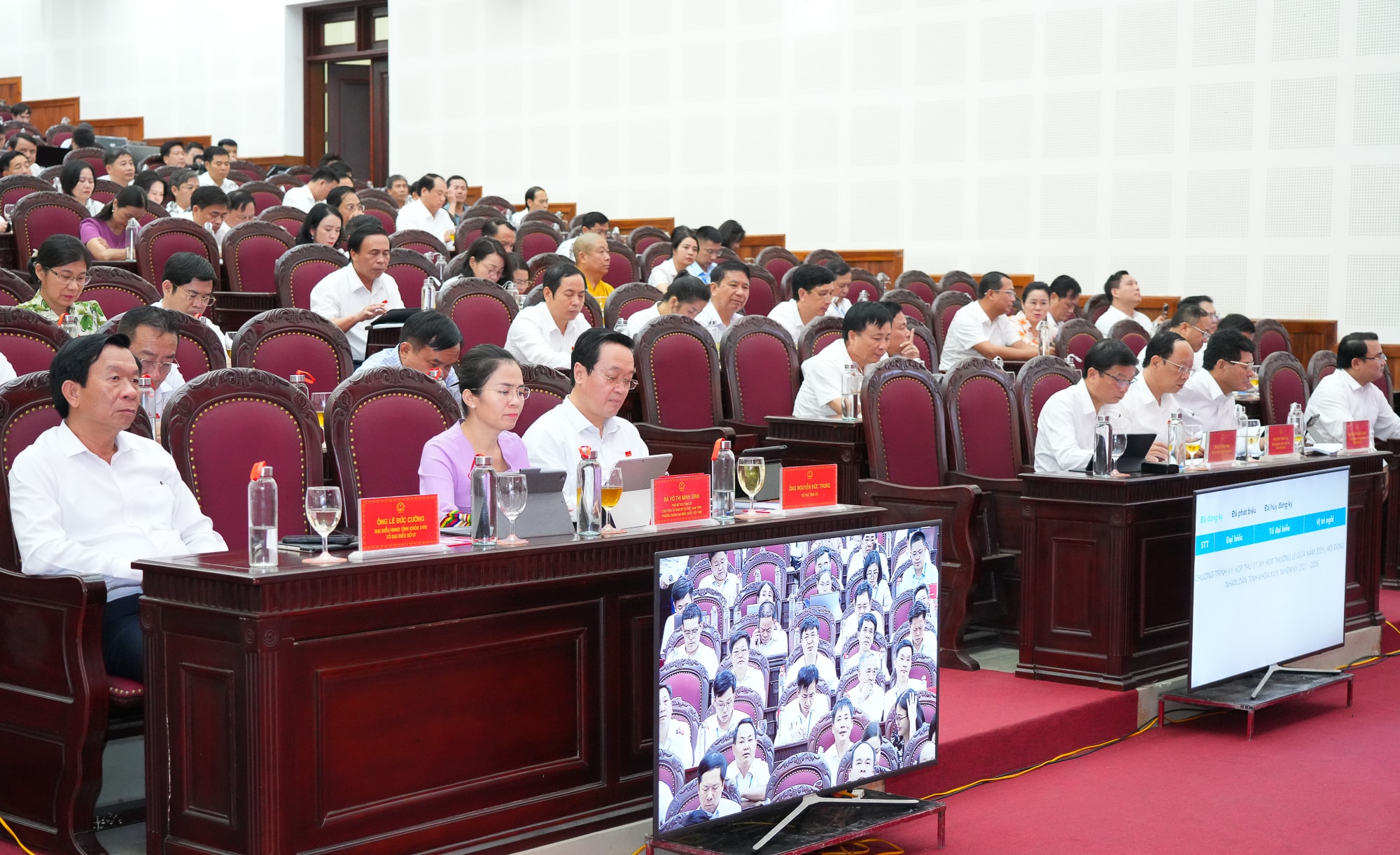
The sector has also implemented a training plan for leaders and IT specialists at the commune level and will continue to train 4 groups in the "Digital Literacy" movement so that public administrative service centers and commune-level government apparatus can operate smoothly.
Emphasizing the important role of the interactive system at the provincial and communal levels, the Director of the Department of Science and Technology said that a community group on social networks of Party Secretaries and Chairmen of People's Committees of communes has been established to regularly discuss problems. Regarding the information interactive system between people and the government, the province has directed the department to urgently deploy the IOC system in the whole province and it will be deployed by September.
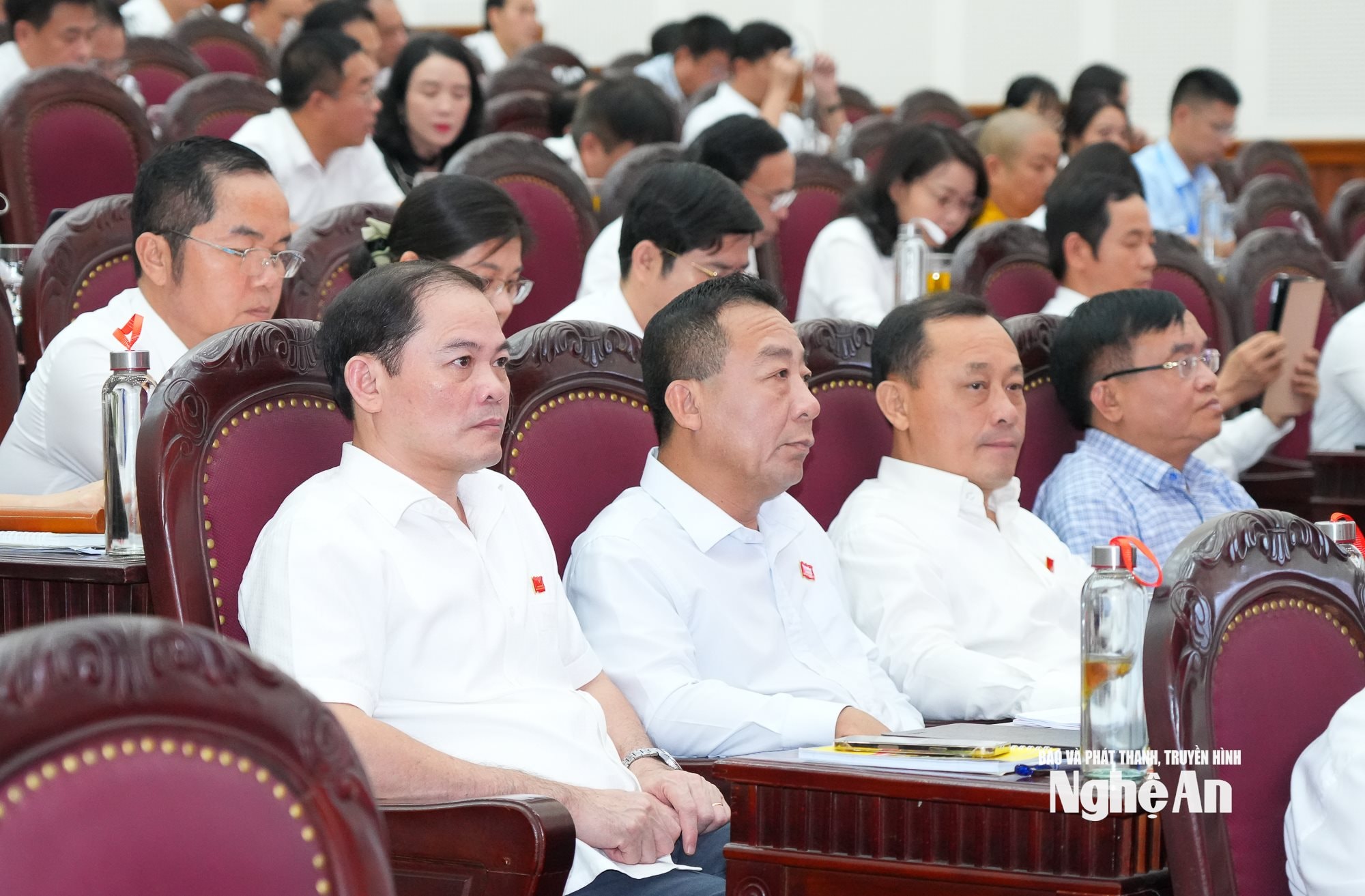
Regarding the coverage of border villages, the Director of the Department of Science and Technology said that currently, 99.73% of the province has access to telecommunication waves, only 0.27% of the area has white spots and depressions. The industry has worked with telecommunication units to increase the density of telecommunication towers, and requested the Ministry of Science and Technology to provide waves to serve villages and hamlets.
Reorienting vocational training program development
In his response to the issue that many delegates are concerned about, which is the shortage of human resources, especially high-quality human resources, Director of the Department of Education and Training Thai Van Thanh said that the Department is interested in improving the quality of vocational training by asking vocational training schools to develop development strategies.
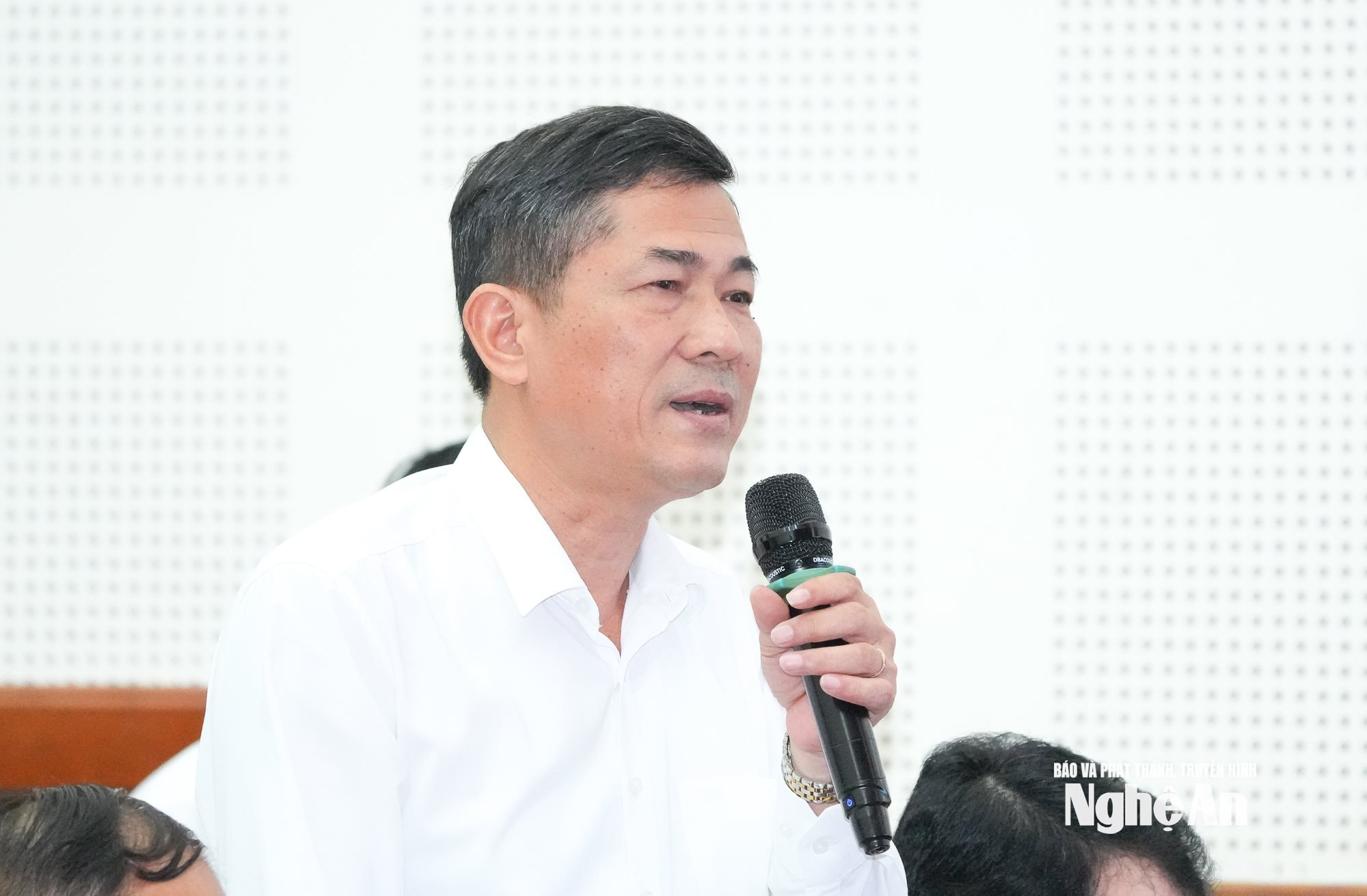
At the same time, train and orient vocational colleges and junior colleges on developing training programs based on competency-based approaches to meet business requirements; re-issue training processes, especially internship processes for students in a modern direction, with 60-70% practice and 30-40% theory. Send students to do internships at corporations and businesses to adapt to their careers, practice their skills, and contribute to meeting the human resource requirements of businesses.
The Department has sent vocational schools to study experiences to complete and update training programs at other schools; at the same time, it regularly connects with businesses in vocational training orientation. The Department will advise the Provincial People's Committee to request businesses to have a systematic human resource planning, on the basis of which the industry will proactively arrange human resources to meet the needs.
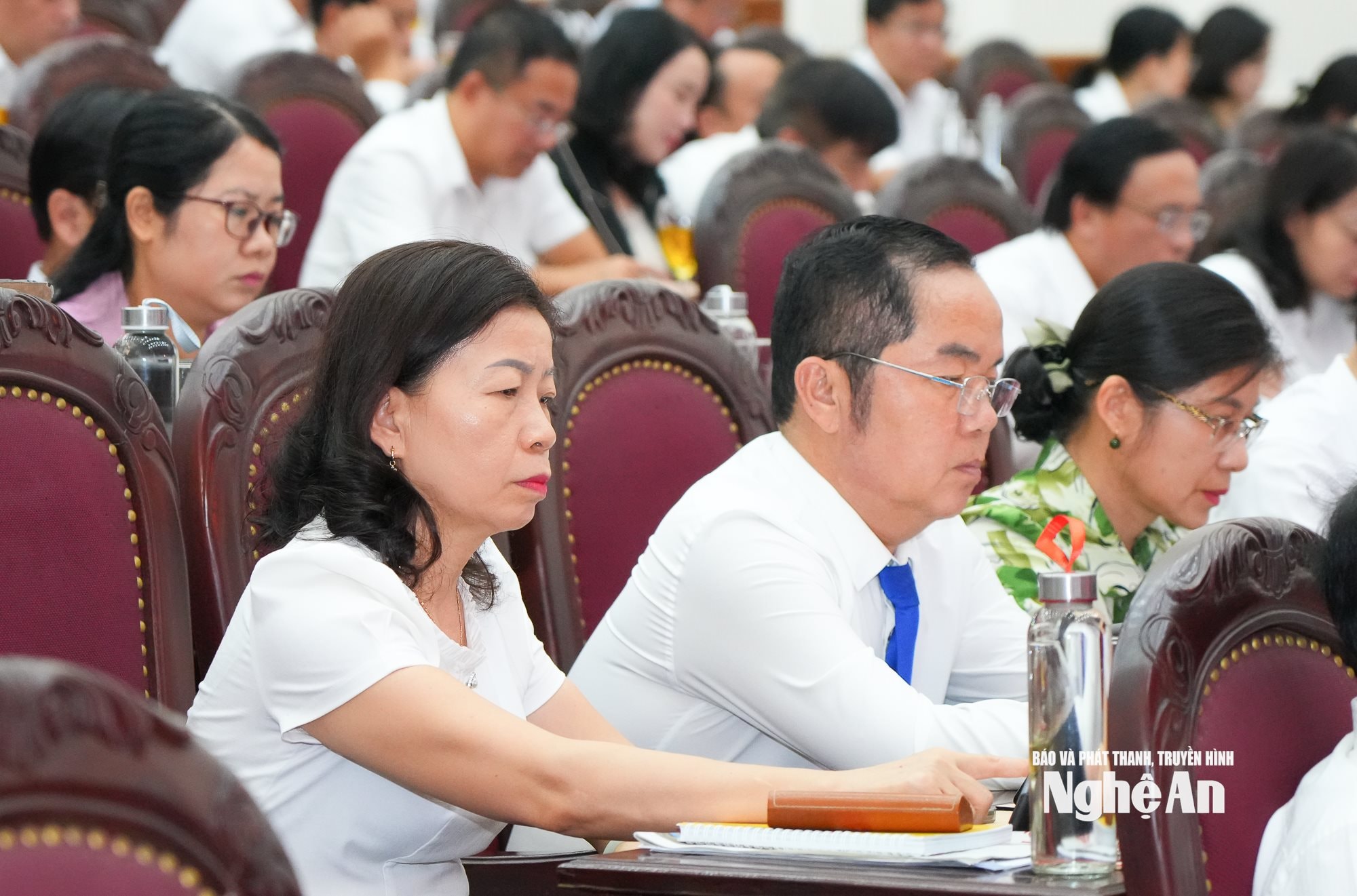
Regarding the planning of vocational school network, Director of the Department of Education and Training Thai Van Thanh said that based on the previous planning system, now shifting to a 2-level local government, it is necessary to adjust the planning appropriately and integrate it into the provincial planning.
Director of the Department of Education and Training Thai Van Thanh also said that the quality of mass education is only assessed through the large-scale high school graduation exam. As for each province and city, it is up to the local authorities to assess it themselves, so the mass quality cannot be confirmed, it depends on the difficulty of the exam.
"Nghe An wants to evaluate in a real, quality way, not to do "tricks" so that when students graduate, they will have enough capacity, intelligence, courage, confidence, and all the elements, thereby confidently entering universities, colleges, and life, standing shoulder to shoulder with big provinces and cities, demonstrating the character of Nghe An people", the Director of the Department of Education and Training affirmed and said that the Department has directed vocational schools and high schools to divide students on a voluntary basis according to aptitude and strengths. In the near future, the Law on Vocational Education will be revised, and vocational secondary schools will be allowed to teach culture, which will create favorable conditions for vocational schools when dividing students after junior high school.
Reorganize into 130 commune and ward health stations
Discussing the work of reorganizing the apparatus and managing assets in the health system when implementing the 2-level local government model, Director of the Department of Health Le Thi Hoai Chung said that the Department is developing a project to reorganize health units associated with the 2-level local government model.
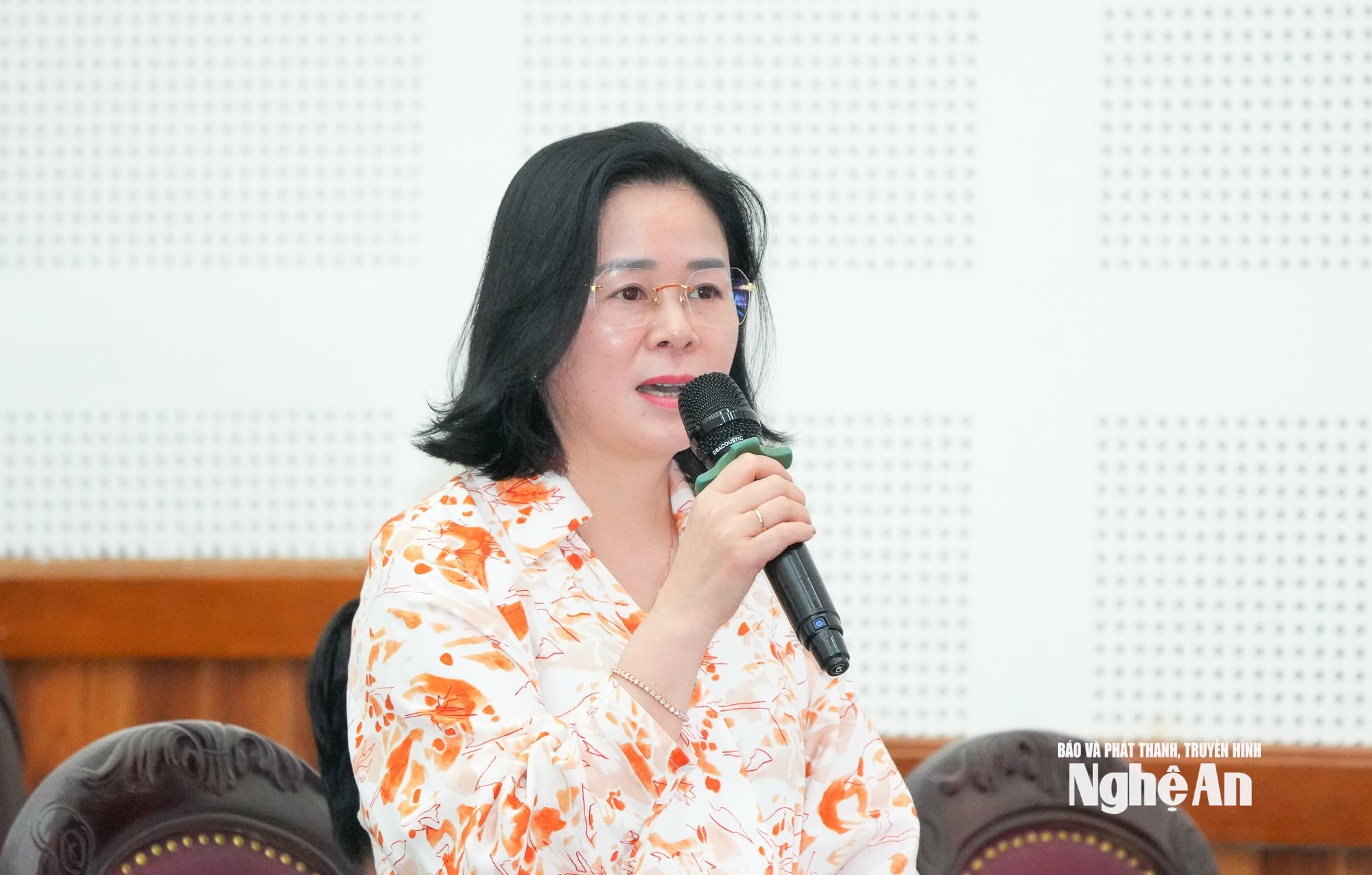
The Department is currently implementing Circular 20 of the Ministry of Health until new regulations are issued. Currently, the province has 457 commune and ward health stations, which will be reorganized into 130 commune and ward health stations associated with 130 commune-level administrative units with criteria to ensure the most convenience for people when receiving health care services, avoid waste, and maximize available resources.
The Director of the Department of Health also said that the current human resources of commune-level health stations are still lacking and weak. At the same time, the rotation and implementation of tasks on supplying materials, bidding, and strengthening the provincial medical staff will face difficulties when these health stations are under the management of communes. Therefore, the Department is currently waiting for the direction and guidance of the Central Government to advise the Provincial People's Committee to develop a suitable and effective arrangement plan.

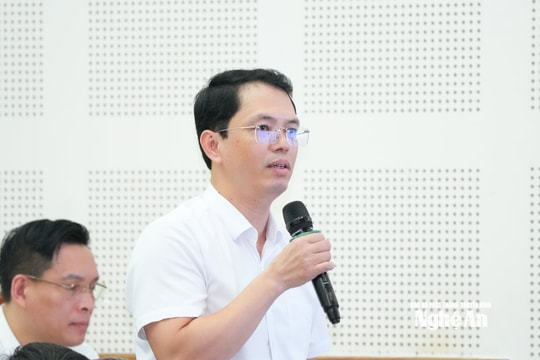
.jpg)
